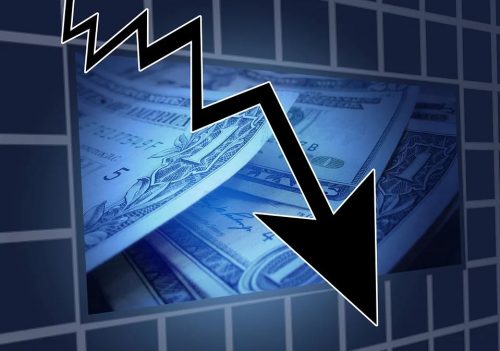
During the pandemic, one of the ultimate tests for the world’s economic stability, more than 20 million Americans began investing in the stock market. That represents a lot of new people investing amid a bear market for the first time, creating uncertainty and desperation among many investors.
People grapple with the fears of investing now vs. waiting for the market to calm down before putting their money into stocks. Additionally, people rush to make investment decisions in things they don’t understand, leading to significant financial pitfalls. Trying to time the market can be risky, as is selling immediately when stocks depreciate. While the term recession triggers uneasiness among investors, shooting yourself in the foot with panicked decision-making will only worsen things. Investment challenges and opportunities are rife during recessions, so here are some crucial mistakes to avoid during tricky financial times.
Selling Everything When The Market is Down
When something goes awry, the instinct for many is to get rid of everything and start over to avoid things getting worse. Especially if investors are going alone, without the help of a financial planner or advisor, panic sets in, and the immediate feeling is to sell everything. However, with stocks and other investments, selling immediately when the market experiences a downturn can hurt investors long-term once the market eventually settles and returns to some normalcy.
When investors don’t have someone to exchange ideas with, portfolios look unappealing, and the declining percentages lead them to make rash decisions. However, these reactions happen because investors aren’t considering the macro perspective. With such a perspective, investors can try dollar-cost averaging strategies. These strategies involve investing the same money regularly. Investors can buy stocks at their highs and lows (when on sale), evening out costs over time, and stop the proverbial bleeding. Dollar-cost averaging is the ideal anti-volatility strategy and helps investors maintain consistency amid fluctuating financial markets.
The Assumption that Short Durations Will Reduce Volatility
An assumption investors typically make is that short durations will offset market volatility during a recession, turning to short-term bonds for lower interest rates. However, such a move usually bears fruit within a rising-rate environment. With rates having been cut in recent years, short-term investments like these can like low or negative effects on the market.
While recessions are painful, having a long-term perspective and being well-prepared allows investors to weather these economic declines. In close to seven decades, the U.S. has been in a recession for fewer than 15% of all months, with average recessions lasting for a little under a year. Recessions might seem like they’ll last a long time, but things typically balance out sooner than expected. Patience and maintaining a diversified investment portfolio allow investors to successfully navigate the pitfalls of market timing and brave short-term volatility for the foreseeable future during recessions.
Day Trading During a Recession is High-Risk
Investment strategies that promise investors will gain back money quickly during a recession are strategies people should steer away from instantly. One such strategy that promises an instant return but can leave investors with instant headaches is day trading, a common go-to for investors throughout trying economic periods.
Day trading involves the buying and selling of the same securities multiple times during each day. Investors hope to capitalize on any market increases throughout the day. Many people day trade on their own rather than as part of a collective. However, one report shows that 97% of futures traders lost money within 300 days, while 70% of forex traders lost money every quarter. In some cases, traders have lost all of their money within a year.
Despite the promise of quick and high returns, day trading during a recession puts investors at risk of losing all their money in a short span without any safety nets or immediate opportunities to bounce back financially. Investors should avoid day trading during recessions as much as possible. If investors are already knee-deep into day trading or beginners are looking to get into it, they should proceed with extreme caution and take as much financial advice as possible.
Recessions put pressure on investors that cause understandable stress and confusion. But nothing lasts forever, and making decisions out of logic rather than fear puts investors in control amid uncertainty.

Author’s Bio
Adam Garcia
Owner of The Stock Dork
Adam is a born and bred entrepreneur who thrives on developing the successes of others while equipping them with the knowledge and resources to create real opportunities for themselves. He has had a passion for finance and investing since high school which led him to create TheStockDork.com as a resource for all investors. Before starting TheStockDork.com, Adam founded and operated an Investor Relations Firm. Throughout the years, he has transformed into a leader who has blazed the trail for many new investors and traders by showing them the ins and outs of obtaining financial freedom.
Interesting Related Article: “How Can Small Business Owners Prepare for A Possible Recession“

